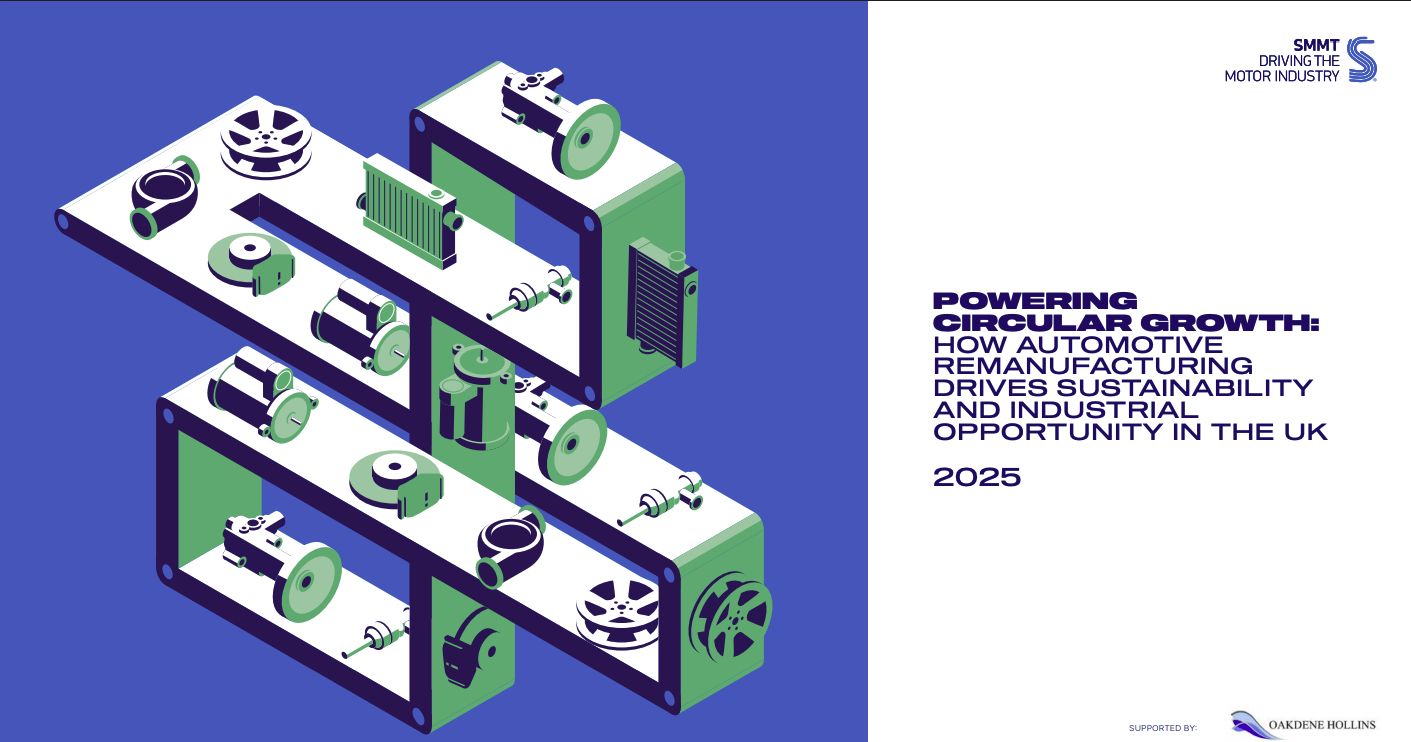How Automotive Remanufacturing Drives Sustainability and Industrial Opportunity in the UK
Oakdene Hollins has supported The Society of Motor Manufacturers & Traders (SMMT)’s newly published report “Powering Circular Growth: How Automotive Remanufacturing Drives Sustainability and Industrial Opportunity in the UK”
The report combines an extensive literature review, insights from leading industry players, and guidance from SMMT’s expert steering group.
It examines the current state and trends in the UK’s independent remanufacturing sector, the environmental, economic, and social benefits of remanufacturing, the effects of evolving legislation and technologies, and offers practical recommendations for government and industry to foster growth and resilience.
Here are the 3 key insights from the report:
1. The automotive remanufacturing sector has significant economic impact and strong growth potential
Globally, the total automotive remanufacturing is in a phase of growth and is expected to increase from £20 billion in 2022 to £31 billion in 2030. Oakdene Hollins and SMMT estimate total UK automotive remanufacturing to be valued at approximately £500 million. With more than 41 million vehicles on UK roads, including a growing fleet of electric vehicles (EVs), the demand for remanufactured components, such as brake calipers, tyres, and EV batteries, is increasing. This growth presents opportunities for job creation, business development, and enhanced competitiveness in the global market
2. Remanufacturing delivers environmental benefits and supports the UK’s net-zero goals
Remanufacturing contributes to reducing the environmental impact of the automotive industry by minimising waste and decreasing reliance on virgin materials. This process supports the UK's transition to a net-zero future by promoting sustainability and reducing carbon emissions
3. Supportive policy and regulatory frameworks are essential to unlock the full potential of remanufacturingTo unlock the full potential of remanufacturing, the report emphasizes the importance of a supportive policy environment. Recommendations include revising end-of-life vehicle regulations to facilitate remanufacturing, updating trade agreements to ease the movement of cores, and promoting product designs that are conducive to remanufacturing and recycling.
👉 For more detailed insights, read the full report here

